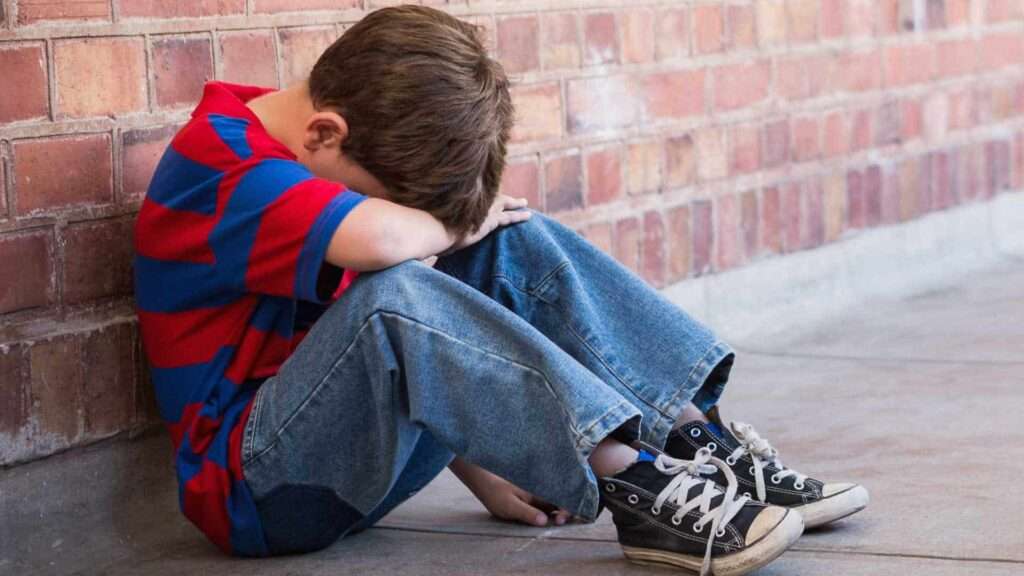For victims of domestic violence, the physical attacks, emotional maltreatment, and other abuse endured are certain to take a toll on well-being.
However, while the horrors of abuse are apparent in primary victims—children who witness the abuse of their mothers, fathers, or other family members, are impacted.
This article will look into the lasting psychological and physical effects of a child’s exposure to domestic violence. To reduce the risk of these effects, it is also important to highlight ways that children can be protected from harm’s way.
How Witnessing Domestic Violence Affects Children

As an all-too-common occurrence across the country, domestic violence is an uncomfortable feature of many American homes. An estimated 10 million people are affected by incidents of domestic abuse annually, a number that widens when silent victims, like children, are considered.
The effects of domestic abuse on children may be apparent within a short period of time, while other damages may be noticed in the long run. Some of the immediate effects that children experience after witnessing domestic violence are discussed below.
In 2010, 1 in 15 children were exposed to cases of intimate partner violence, with a worrying 1 in 3 children also experiencing acts of violence.
Anxiety
Children are likely to remain on edge if they are always surrounded by the abuse of one parent by the other. These children will live in bated breath for the next time physical or verbal assault might take place in their home. This can breed a state of perpetual anxiety.
School-aged children can develop anti-social traits and may struggle with guilt over the abuse witnessed. These children typically take on the blame for the abuse their parent deals with, a belief that can strongly bruise their self-esteem.
Post-Traumatic Stress Disorder
One of the most devastating effects of domestic violence is its ability to cause post-traumatic stress disorder in children that are raised around it.
Despite being spared from physical abuse, the trauma of domestic violence is enough to cause dangerous changes in the developing brains of children. These changes may cause nightmares, changes in sleep patterns, anger, irritability, difficulty concentrating, and children may sometimes have the ability to re-enact aspects of the traumatizing abuse observed.
Physical Challenges
Mental health strains are a common result of witnessing the abuse of a parent. However, these consequences may sometimes be apparent in their physical well-being.
School-aged children may report headaches and stomach pains which are traceable to the tense situation back home. In infants, there is a higher risk of experiencing physical injury following the constant stream of abuse on a parent.
Aggressive Behavior
When teenagers witness domestic abuse, they tend to act out in reaction to the situation. They may fight, skip school, engage in risky sexual activities, or dabble in drugs and alcohol. These teenagers are also very likely to get in trouble with the law.
Physical Abuse
In many instances, children that live in abusive households are also likely to fall victim to this treatment themselves.
An abusive partner can very easily become an abusive parent or guardian—physically, verbally, and emotionally harming their children.
Long-Term Consequences of Witnessing Domestic Violence
As helpful as distance might be, simply moving away from domestic violence isn’t enough to undo the damage caused by witnessing it.
Children that grew up watching a parent experience abuse are likely to deal with effects that last well into adulthood. Some of the long-term effects that children experience after witnessing domestic violence are addressed below.
Depression
The anxious child raised in a toxic, abusive environment may grow to become a depressed adult. The trauma of routinely witnessing domestic violence places children at a high risk of developing depression, sadness, concentration issues, and other symptoms of depression into adulthood.
Health Problems
A poor diet or environmental risks may not always be the primary causes of conditions like heart disease, obesity, and diabetes in adulthood.
Feeling the pain and anguish of witnessing violence doesn’t always guarantee that children will toe a different path. In some cases, early exposure to abuse simply sets the stage for children to walk that same line in adulthood.
In these cases, male children might physically abuse their partners after watching their fathers do the same. Likewise, women from homes that witness domestic violence are more likely to be sexually assaulted by their partners in adulthood.
Protecting Children from Domestic Abuse
Knowing that domestic violence can have lasting effects on the physical, mental, and later life of children—it’s important to properly shield them from abuse. The following are ways to protect a child from domestic abuse.
Make Safety a Priority
One of the best ways to protect the interest and well-being of a child is for victims to receive the necessary support they need to leave the abusive environment.
By doing this, children are spared further exposure to violence and are given a chance to grow up within healthier structures.
Teach Children Healthy Relationship Dynamics
With a skewed view about romantic dynamics, talking to children about healthier interactions between partners can help to manage the damage caused after witnessing domestic violence.
Children should be taught healthy ways to resolve disputes in friendships. It’s important that they learn wholesome ways that partners can relate with each other, taking care to share why violence has no place in relationships.
Educating Children About Boundaries
An effective way to manage the damage, and prevent a cycle of domestic violence is to teach children healthy boundaries.




